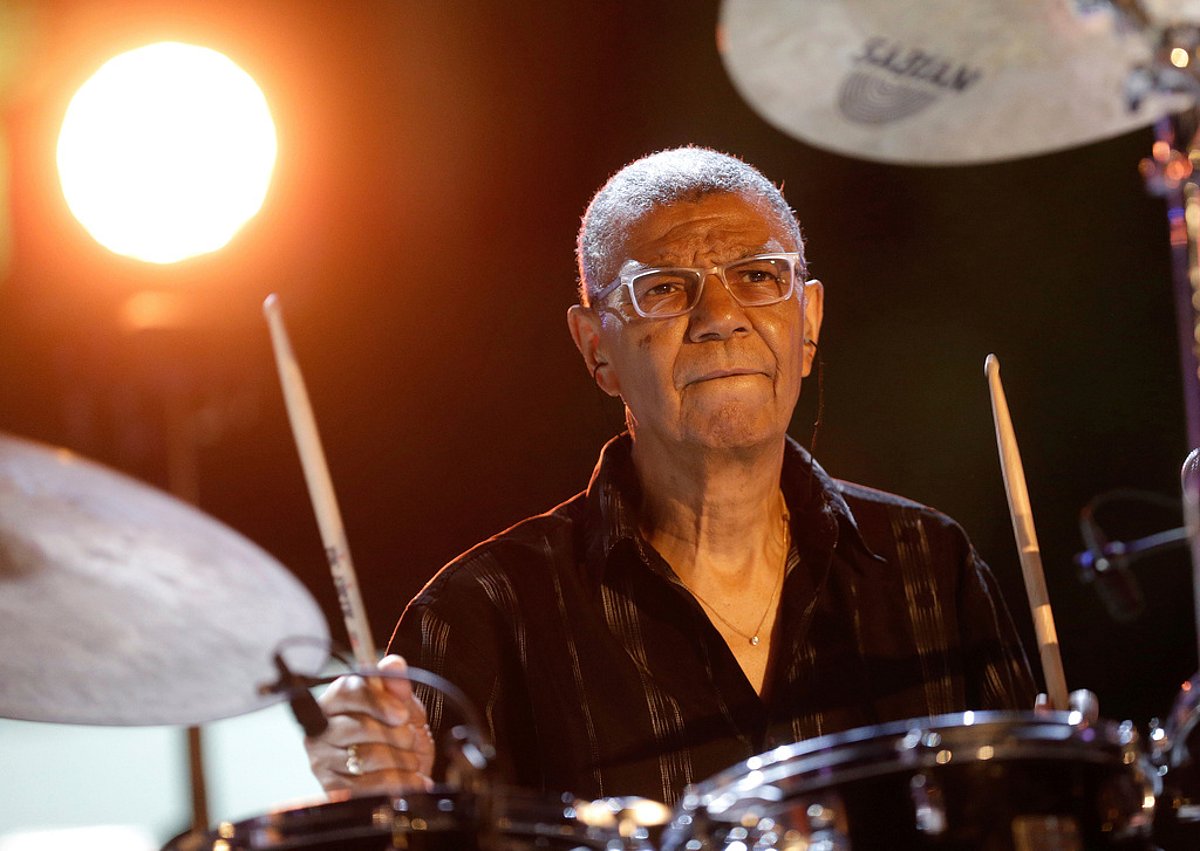Remembering Jack DeJohnette: Jazz Legend’s Impact
Jack DeJohnette, a transformative figure in the world of jazz, passed away at the age of 83 on Sunday in Kingston, New York. Known for his innovative drumming and collaborations with legendary artists, DeJohnette’s contributions to music have left an indelible mark on the genre. His assistant, Joan Clancy, confirmed that he died from congestive heart failure, surrounded by his loved ones.
Early Life and Musical Journey
Born in Chicago in 1942, DeJohnette’s musical journey began with piano lessons at the tender age of four. By his teenage years, he had transitioned to drumming, quickly establishing himself as a vital part of his high school band. This early exposure to rhythm set the stage for a prolific career that would see him collaborate with some of jazz’s most influential figures.
Collaborations with Jazz Legends
Throughout his career, DeJohnette worked alongside a remarkable array of artists, including Miles Davis, John Coltrane, Thelonious Monk, and Betty Carter. His ability to adapt and innovate earned him recognition as a key player in the evolution of jazz. In 2012, the National Endowment for the Arts honored him as a Jazz Master, a testament to his enduring influence on the genre.
DeJohnette joined Miles Davis’ band in 1968, a period marked by experimentation and creativity. He described the studio environment as a “laboratory of sound,” where the group would explore new grooves and ideas. This collaborative spirit defined much of his work, allowing him to push the boundaries of jazz.
A Prolific Career
As a bandleader, DeJohnette recorded numerous albums, many of which were released under ECM Records. He was also a vital member of the acclaimed Standards Trio, alongside Keith Jarrett and Gary Peacock, for over 25 years. Rolling Stone recognized his talent by ranking him among the top 100 drummers of all time, highlighting his unique ability to create memorable melodies.
His artistic range spanned various genres, from avant-garde jazz to new-age music. DeJohnette’s 2009 album, “Peace Time,” won a Grammy for Best New Age Album, while his 2022 release, “Skyline,” earned him another Grammy for Best Jazz Instrumental Album. His versatility and creativity were hallmarks of his career.
Legacy and Personal Reflections
Reflecting on his journey, DeJohnette expressed a deep sense of purpose in his work. “I never doubted I’d be successful at this — something just felt like it was carrying me,” he once stated. His ability to listen, both musically and emotionally, was a gift that he cherished and utilized throughout his life.
DeJohnette is survived by his wife, Lydia, and their two daughters, Farah and Minya. His legacy will continue to inspire musicians and jazz enthusiasts around the world.
FAQs
What was Jack DeJohnette known for?
Jack DeJohnette was renowned for his innovative drumming style and collaborations with jazz legends, significantly shaping the genre’s evolution.
How did Jack DeJohnette contribute to Miles Davis’ music?
DeJohnette played a crucial role in Miles Davis’ band during a transformative period, contributing to the experimental sound that defined Davis’ later works.
What awards did Jack DeJohnette receive during his career?
DeJohnette received multiple accolades, including two Grammy Awards and recognition as a Jazz Master from the National Endowment for the Arts.
Conclusion
Jack DeJohnette’s passing marks the end of an era for jazz music. His innovative spirit and collaborative nature have left a lasting legacy that will continue to influence future generations of musicians. As the jazz community mourns his loss, his contributions will be celebrated and remembered for years to come.
DeJohnette’s influence extended beyond his performances and recordings; he was also a mentor to many young musicians, sharing his knowledge and passion for jazz. His workshops and masterclasses inspired countless drummers and composers, fostering a new generation of artists who sought to explore the boundaries of the genre. His commitment to education reflected his belief in the importance of passing on the traditions and innovations of jazz.
In addition to his musical achievements, DeJohnette was known for his deep appreciation of the arts, often drawing inspiration from visual art and literature. This interdisciplinary approach enriched his compositions and performances, allowing him to create a unique sound that resonated with audiences worldwide. His ability to blend various influences into his work exemplified the spirit of jazz as a constantly evolving art form.
Also Read:
Remembering Patrick Dela Rosa: Actor and Community Leader






